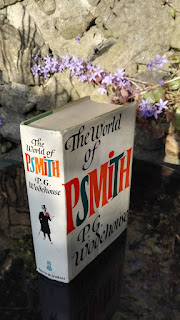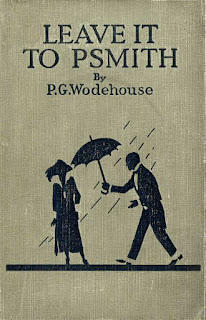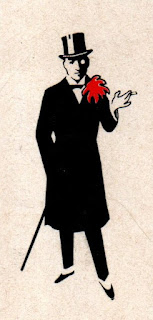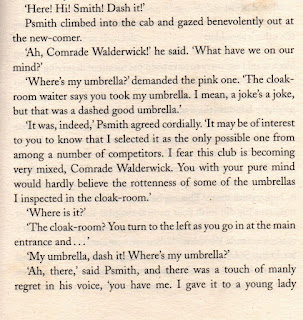"There are too many Smiths, and I don't care for Smythe. My father's content to worry along in the old-fashioned way, but I've decided to strike out a fresh line. I shall found a new dynasty".
So began the search for distinction of P.G. Wodehouse's 'Ronald Eustace Smith' over the course of several storylines.
(And always with a silent 'P' - "as in psychic")
In the way of Evelyn Waugh who basked in the inspiration of dandies at Oxford, Wodehouse was gifted Psmith - in all his exquisite nuances:
"The character of Psmith, of whom you are about to read (unless you decide on reflection to watch television instead) is the only thing in my literary career which was handed to me on a plate with watercress around it . . . Rupert D'Oyly Carte was long, slender, always beautifully dressed and very dignified.
His speech was what is known as orotund, and he wore a monocle. He habitually addressed his fellow Wykehamists as "Comrade" . . . This was in 1908, when I was not the man of lightning intelligence I have since become . . ." (1)
 |
| The collected Psmith tetralogy by P.G. Wodehouse published in 1974 |
An Edwardian exquisite - with a lifelong monocle accoutrement - Psmith's career took him through banking and journalism, before a traumatic descent into Billingsgate fish market.
A somewhat spiteful detour of authorship which Psmith was allowed to survive and escape. Towards his 'proper sphere' . . . and Blandings Castle.
Psmith the camera pshy
As yet, Wodehouse's immaculate dandy has scarcely received visual representation.
A 1981 BBC documentary briefly featured Daniel Day Lewis in the role of Psmith, no less.
However, it remains lost to modern appreciation. If perhaps, not entirely . . . for hints of Psmith's manner may well linger in Mr Day-Lewis's portrayal of 'Cecil Vyse' in A Room with a View.
Audio adaptations abound but usually lack the languor and insouciance, so essential for dealing with unseen dandies.
The most recent Radio 4 production Leave it to Psmith simply sped past the 'Painful Scene at the Drones Club' which begins Chapter Four.
And where Wodehouse provides a masterclass of ironic interplay between the dandy and an everyday bystander. In this case, a bewildered umbrella owner.
Here's the start of their lengthy exchange:
 |
| Cover of the first edition of P.G. Wodehouse's final Psmith novel published in 1923 |
In the shadow of Psmith
And so, despite various television depictions of Wodehouse works, Psmith awaits the sterling efforts of producers.
A challenge compounded by a salutary realisation:
"The long history of Wodehouse's association with film and television is a dispiriting catalogue of comic disappointment." (2)
Not that Psmith's televisual void should be regarded as an absolute abyss.
For the character's dandyism was only slightly diluted in the capricious encounters of a later Wodehouse eccentric.
Uncle Fred graced television screens in 1955, as the Wodehouse era was well and truly waning. Although David Niven took great care of the role with enduring ease.
And with artful Wodehouse wit:
Meanwhile, we may explore some of the worthiest prose the English language has conveyed. And hold dear to a rather jaunty prophecy . . .
"The cry goes round Kensington (and district) "Psmith is off!" In what direction the cry omits to state: but that information the future will supply." (3)
John Gilheany is a Freelance Copywriter serving South Wales wording requirements with: 'A dash of Tonic!'
1) From the author's Preface to the 1974 compilation of his Psmith series of novels.
In typical Wodehouse style, mistaken identity has slightly haunted matters: Psmith - Wikipedia
3) Leave it to Psmith (ch 2)







Comments
Post a Comment